Whether you are a brand new real estate agent or have been serving your clients for decades, it is absolutely critical to be adaptable. What used to be a great way of finding new clients 20 years ago may be an unproductive strategy today. By contrast, a strategy that seemed irrelevant several years ago may be a fantastic way to get new clients and grow your business.
Importantly, however, there have been some sales and marketing strategies that have remained effective for years. One of those strategies has been to get many positive reviews on review sites like Zillow and Yelp. These types of review and social networking websites can both build your personal profile, help you meet all types of prospects, and help you generate more sales.
In this post, I want to explore how real estate agents like you can use these review sites to reach your sales and marketing goals. And even if you are already on these websites? We are going to discuss some tactics and strategies that can help you get even more from these powerful platforms.
Table of Contents
Why Review Sites Are So Powerful
Some Great Review Sites for Real Estate Agents
How You Can Use These Websites to Get More Clients
Get Customer Testimonials and Reviews
Capturing Reviews As Part of Your Sales Process
Write Engaging Property Descriptions
Use These Tools to Get More Sales
Why Review Sites Are So Powerful
As you likely already know, review sites are places where individuals can not only learn about you and your business, but how other clients and customers have felt about your services. These websites allow customers to share their experiences with others, providing valuable feedback that can help businesses improve their offerings and build their reputations.
In all likelihood, you have left a review (or, at the very least, visited) some of these websites. This includes everything from TripAdvisor and ConsumerReports to Glassdoor and Angie’s List.
But if you really think about it, why are review sites so powerful? I think it comes down to several things.
- Credibility: Review websites are powerful for businesses because they provide a source of credibility. When customers leave reviews, they are sharing their real experiences with others, which makes their feedback more trustworthy than advertising or other forms of self-promotion. People are more likely to trust the opinions of others who have actually used a product or service. Ultimately, reviews offer a way for businesses to showcase the positive experiences their customers have had and enhance their credibility with new prospects. In fact, studies have shown that reviews can have a significant impact on consumer behavior. A 2021 survey by BrightLocal found that 87% of consumers read online reviews for local businesses, and that 94% of consumers would be more likely to use a business with positive reviews. This demonstrates just how important reviews are for businesses and why they need to pay attention to what their customers are saying online.
- Social Proof: When potential customers see positive reviews, they are more likely to trust the business and feel confident in their decision to purchase from them. This is because people are influenced by the opinions of others, and are more likely to make a decision based on what they see other people doing. When a business has a lot of positive reviews, it sends a signal that they are reputable and trustworthy, which can be a powerful motivator for potential customers. There are plenty of ways to generate social proof of these types of websites, so stay tuned for more on this.
- Increased Visibility: Many review websites have high traffic and are well-indexed by search engines, which means that positive reviews can help to improve a business’s search engine ranking and increase its exposure to potential customers. This is because search engines use a variety of signals to determine which websites are most relevant to a particular search query, and reviews can be an important factor in this process. As you can guess, this type of increased visibility gives you more shots on goal and the potential to find more clients. If your profile page is able to get to the top of Google (or some other search engine) and someone types a query like “real estate agents near me,” you’ll find that you get many more calls, form fills, and more.
- Feedback: When clients leave reviews, they are providing businesses like yours with insights into what they are doing well and what they could improve. This feedback can be invaluable for businesses that are looking to improve their products or services, and can help them to make informed decisions about how to better serve their customers. Even though negative reviews can hurt, they can provide some extremely valuable data that you can use to improve your business.
These are just some of the many ways that review websites can help you grow and scale your business. Even if you are just getting started, you will find that having a presence on these websites can provide immense value to your real estate firm.
Some Great Review Sites for Real Estate Agents
Speaking of this, if you are brand new to review sites, you may be wondering which websites to list on. While there are no hard and fast rules here, you may want to consider listing on some (or all) of the following review sites:
- Zillow: Zillow is a popular real estate marketplace that allows users to search for properties and real estate agents in their area. Agents can create a profile on Zillow and receive reviews from past clients. Zillow is arguably the most important review website for real estate agents to be on, so I highly recommend that you spend some time here.
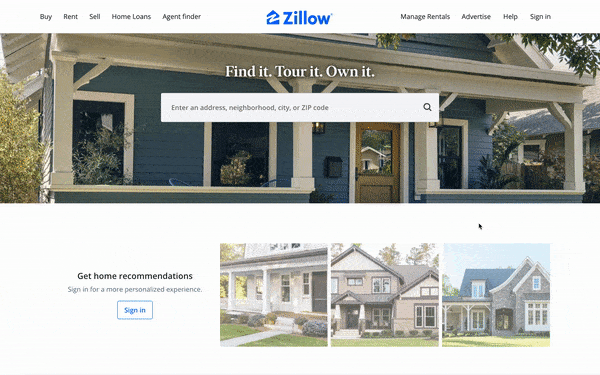
- Realtor.com: Realtor.com is another popular real estate website that allows users to search for properties and real estate agents. Like Zillow, you can receive reviews and interact with those who choose to comment on your page.
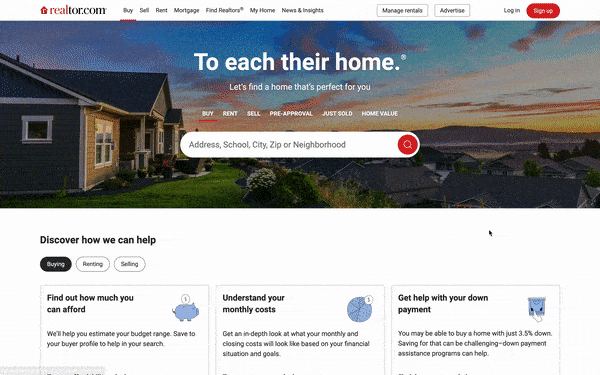
- Yelp: Yelp is a general review website that covers a wide range of businesses, including real estate agents. Agents can create a profile on Yelp and receive reviews from past clients. While Yelp may not be the first platform you think of in this discussion, it can be a helpful tool to help you find new prospects.
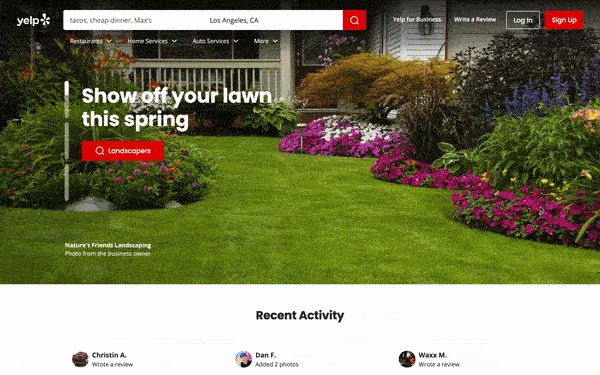
- Google Business: Google Business is a popular review platform that allows users to leave feedback for businesses, including real estate agents. Agents can create a Google My Business profile and receive reviews from past clients.
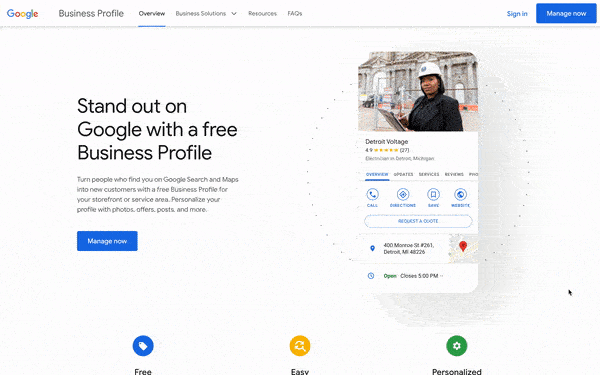
- Angi: Angi (formerly called Angie’s List) is a review website that focuses on home services, including real estate agents. Like Yelp, it may not be the first thing that comes to mind, but this can be a valuable platform if you are looking to find new clients.
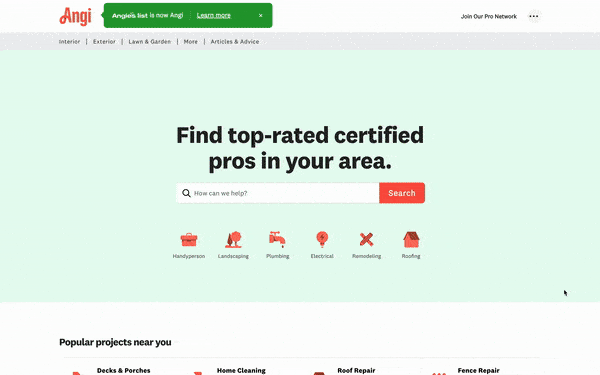
To be clear, these aren’t the only review websites that you can have a presence on. Whatever you choose, however, this raises the broader question of how many websites you should leverage as part of this strategy.
As a simple rule of thumb, I think that you don’t need to be on every single review website. While this may sound nice in theory, it becomes that much more difficult to monitor and respond to reviews. If you see a negative review on one of these sites, for instance, you may want to respond to that review (after all, everyone else is seeing it). At the same time, this takes up some of your precious time. Even if one of your colleagues is monitoring and responding to these comments, it is time that could be spent elsewhere. In other instances, even if you are simply monitoring your other review sites, you have to make an effort to do so.
So what does all of this mean? I think that you should be strategic in the websites that you use. The precise number is up to you, but make sure that you have enough time to maintain your presence on them. As we will discuss below, doing so will help you get the most out of these platforms and help you find more clients.
How You Can Use These Websites to Get More Clients
Now, to the moment of truth. Let’s talk about how we can use these review websites to build up our online presence, find new prospects, and generate more sales.
Like I mentioned several times above, this isn’t an exclusive list. Once you start using these review sites, you will probably come up with some other types of strategies or tactics to get the most out of them. However, in our experience, these are some of our favorite ways to use these platforms to accomplish your goals.
Get Customer Testimonials and Reviews
This is arguably the most important part of getting listed on these sites for real estate agents. Customer testimonials and reviews can make the difference between finding a new client and losing a new client to one of your competitors.
So why are they so powerful? I can think of several different reasons:
- They build trust: When potential customers see positive reviews and testimonials from real people, they put more trust in the brand and your product or service. As you are in a service business, you recognize that trust is one of the most important elements of getting a sale. Sure, you will need to do some more work to convince that interested prospect to work with you. However, that review or testimonial gives you some momentum and helps you start the relationship on the right foot.
- They demonstrate credibility: Testimonials and reviews from happy customers demonstrate that your real estate business is credible and can be trusted to deliver on your promises. After all, if it couldn’t, your profile page would either have no reviews or overly negative reviews, right? If you have a large number of five-star reviews on your page, a prospect is going to take a much closer look at your real estate business.
- They offer insights: Reviews and testimonials can provide potential customers with valuable insights into what they can expect when working with your real estate firm. In essence, they can make more informed decisions and be confident with the decisions that they are making.
- They help overcome objections: Reviews and testimonials can help overcome objections that potential customers may have, such as concerns about quality, price, or reliability. Sure, you can include something like an FAQ page to discuss these objections. But at the same time, when a customer is putting their reputation on the line by positively speaking about their experience with you, you’ll be in a better place to overcome any objections that your prospects may have.
- They increase conversions: This is largely why we gather customer testimonials and reviews in the first place. Positive reviews and testimonials can increase conversions by providing social proof that a product or service is worth buying. If you invest in getting customer reviews or testimonials, I’m sure that you will see at least a slight uptick in your conversion rate.
So what happens when you are trying to get customer testimonials and reviews on your real estate websites? I’d encourage you to follow several different best practices.
Opt For Real Identities
First, avoid anonymous testimonials if you can. This principle isn’t really that complicated. Anonymous reviews or testimonials cannot be verified, which makes it difficult to determine whether they are genuine or fake. This lack of credibility can undermine the effectiveness of the testimonial or review in building trust with potential customers. After all, if readers see that the reviewer didn’t put their real name in the review, they can assume that the reviewer is biased. It may be a friend, relative, or even you writing the review on your behalf.
You’ll definitely want to avoid these types of reviews. Instead, what you will want is a review that not only has a real name attached to it, but that includes a profile picture of the reviewer. By putting these elements together, the review or testimonial becomes that much more real. It helps you leverage most of the benefits of reviews that we discussed above (like enhanced credibility and higher levels of trust).
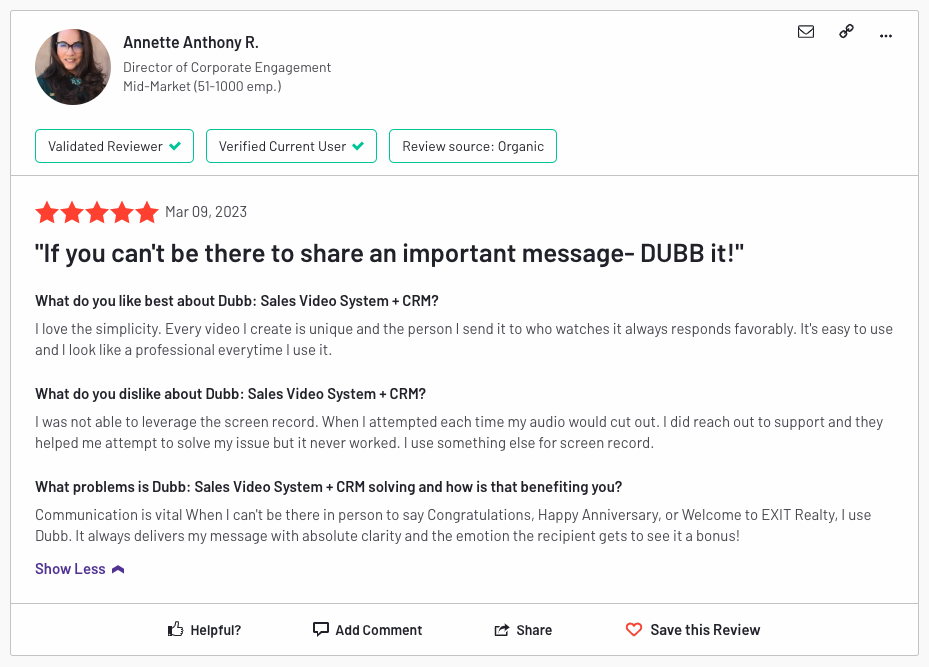
Therefore, if you worked with a satisfied client who wants to deliver a review or testimonial for you, ask if they can add their name and picture to the testimonial. If they can’t, you obviously don’t want to take back the invitation. However, don’t hesitate to mention this point as you are making your request. Your future self will thank you.
Embrace the Nuance
Associated with this, don’t hesitate to invite testimonials or reviews that aren’t overwhelmingly positive.
This may seem counterintuitive, but it is actually a really important point. Some of the best testimonials are where the testimonial or review giver isn’t being overly positive about your real estate business. Instead, what they are doing is maybe saying one thing that wasn’t so great about your business, but then spending the rest of the review talking about why your business still offered immense value.
Just think about it: if you are reading a review or testimonial that is over the top and 100% positive, you intuitively suspect that the reviewer is biased. That intuition makes you trust the review less, meaning that the company isn’t getting all of the benefits of reviews that we talked about above.
On the other hand, if you are reading a review where the reviewer offers some honest criticism of the company, you are going to trust it more. It is going to seem less fake and more real. And because of this, the review is going to be more effective and will make it more likely that a prospect will contact your real estate firm. Even though it may initially seem like it is harmful, this type of negative feedback will actually benefit you in the long run.
So when you are asking for reviews or testimonials, ask for honest feedback. If a customer delivers a testimonial that says, “I initially had a problem doing X, but the real estate agent solved the problem by doing Y,” you are in a great position. This type of review or testimonial shows that you are a problem solver and that you can deliver real value to your clients. These types of honest reviews are much cooler than having a whole page of testimonials saying that your real estate firm was perfect.
Go For The Specifics
Next, ask for specifics. Specifics are helpful when customers are giving online reviews because they provide more detailed and actionable feedback to both the business and potential customers.
For starters, specific feedback adds credibility to the review because it shows that the customer has taken the time to provide thoughtful and detailed feedback. This can help other customers trust the review and make a more informed decision about whether to become a client of yours. If they see that a reviewer took the time to write a specific, detail-oriented testimonial of working with you, they will likely pay more attention and reach out to learn more about your firm.
It also helps you improve. Specific feedback allows your business to identify areas where you need to improve and make changes to better meet the needs of your prospects and customers. As just one example, if a review says that the closing process could have been smoother, you can use that feedback to make any necessary changes to your overall process.
In the end, you want your clients to be specific about everything. You want specifics about the challenges they went through in the buying and/or selling process. You even want specifics about the individual reviewer (for instance, where they are from and some of the hyper-personal circumstances they had to deal with when buying or selling their property). This can help the review connect with others who are in similar situations. While the reviewer may not want to share everything, asking them for specifics will get you started on the right foot.
Going the Extra Mile
Finally, I want to mention one quick idea here. At this point, we have been overwhelmingly focusing on written reviews or testimonials. These are historically how reviews and testimonials have been gathered on the Internet. What we often do is go to a review site like Yelp, read a few text reviews, and then make a decision on whether or not to work with that business.
That being said, I want to mention another tool that can help you here. Specifically, I’m talking about asking for video testimonials. Video reviews or testimonials are more powerful than text-based testimonials for a variety of reasons. Some of those reasons include:
- Authenticity: Video testimonials are more authentic and believable than text-based testimonials because they provide a face and voice to the testimonial. This helps build trust with the viewer and creates a more personal connection. While text-based testimonials can be effective, video testimonials have this added authenticity which makes them even more effective.
- Emotion: Video testimonials allow the viewer to see the emotion and enthusiasm of the person giving the testimonial. This is especially helpful in the real estate sector. If you have a client giving a passionate, emotional testimonial about you and your business, you’ll find that that testimonial is extremely powerful.
- Visual appeal: Videos are more visually appealing and engaging than text-based testimonials. They can include images, music, and other visual elements that help to tell a story and make the testimonial more memorable. The visual appeal and stickiness of video make intuitive sense.
- Attention span: In today’s fast-paced world, many people have short attention spans and may not take the time to read a long text-based testimonial. Video testimonials can be more engaging and keep the viewer’s attention longer.

Because of this, I encourage you to ask for video testimonials. Sure, you don’t want to turn down a perfectly good written review or testimonial. At the same time, if you are actively approaching a client for a review or testimonial, don’t hesitate to ask for a video testimonial first. If you are able to get one, you will be glad that you did.
Capturing Reviews As Part of Your Sales Process
So to this point, we have talked about the power of reviews and testimonials. Whether you have a profile on Zillow, Yelp, and/or some other review site, you will want to leverage the power of client reviews.
That much is clear. However, at this point, what may not be as clear is how you can actually get those reviews and testimonials. After all, you’re probably extremely busy. While you may be all on board with the idea of getting reviews and testimonials on these types of review sites, you may not know how to actually do so in your day-to-day life.
On the broadest level, I recommend that you make testimonial gathering part of your daily sales process.
Let me help by giving you an example. Let’s say that you just worked with a client to purchase a new home. Once the escrow closes and the client has the keys to their new home, you may want to pull them aside and ask for a review or testimonial. You don’t need to come up with an elaborate speech or script before asking the client. You can say something like, “I really hope that you have been satisfied with this entire process. If you have just a few seconds, I would love it if you could leave a video or written testimonial on a review website.”
You’ll obviously want to customize your ask, but the point remains: doing so at the end of a successful purchase or sale is a great time to do so. You can even make the ask several hours (or days) later in an email. That email can be short and sweet. In fact, you can make this a regular part of your sales process. Also, by asking over email, you can make it extremely easy for the client to record a testimonial.
A great way to do this is by using Dubb. Dubb, if you don’t already know, is a video communications tool that can help you find more clients and increase your conversion rate. What you can do here is record a personalized, one-to-one video using Dubb. In that video, you can essentially say the same thing that you would if you were asking for the video testimonial in-person. It can be something like, “Thanks so much for working with me. It would mean the world if you could leave me a referral, review, or testimonial. These things are the highest possible compliments you can give me. Click on the buttons below to give your review.”
The key word here is below. Using Dubb, you can include call to action (CTA) buttons below your videos. But let’s back up. Once you record your video using Dubb (or you record your video separately and upload it to Dubb), your video will automatically be added to a video landing page. You can do many things with that video landing page (like adding customized branding and including other videos as part of a playlist). However, the more important feature in this discussion is the call to action button.
Using Dubb, you can include one (or several) call to action buttons below your video. Different situations call for different call to action buttons. Here, however, you will want to include call to action buttons that direct your client to your different review sites. You can customize the text of those call to action buttons so that they will know exactly where they are clicking. For instance, one button can say “Zillow” and another can say “Realtor.com.” Whatever the case may be, you will want to ask for the review in the video and then physically point down as you are speaking. This will make for an extremely easy way for your client to submit their testimonial and help you grow your business.
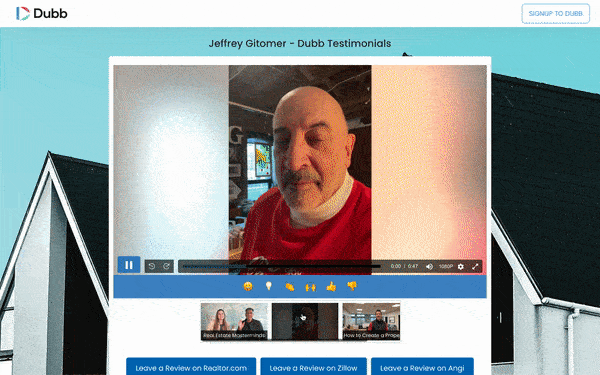
I’d argue that you can make this process even easier. You can create a preset on Dubb that contains the specific call to action buttons that you want. In other words, you don’t have to recreate the wheel every single time. You can create a review or testimonial preset, create a quick 30-second video, upload it to Dubb, and then send it off to your client. You can do this for every client that you work with. Once you put in the upfront work, all you need to do is record the video and send it off.
That said, you can even take this one step further. Instead of recording the video after the sale, what you can do is leverage a pre-recorded video and incorporate it as part of an automated workflow. This is for pro users only, so don’t feel the need to do this if you feel uncomfortable. However, if you put all of this in an automated workflow that is triggered when your client buys or sells a specific property, you will be well on your way to leveraging reviews and testimonials.
I just want to make one final point here. The reality of getting testimonials or reviews is that you probably won’t get them on the first try. You need to be persistent here. It may take you months to get that review or testimonial. Certainly don’t be afraid to follow up. However, if the client is not responding after your third email (or another type of outreach), you will probably want to give them an out. By this, I mean giving them a way to politely decline your request without it being awkward.
Making it easy for a client to forego a testimonial or review with you isn’t only the polite thing to do. It can help preserve the relationship and help you generate even more business from that client. Hopefully, however, it doesn’t come to that. Make sure that you are being respectfully persistent when asking for these reviews and testimonials. It is the best way to go forward and maximize your odds of success.
Optimizing Your Profile Pages
Finally, I want to spend a few moments talking about optimizing your profile pages on these review websites. Whether you are looking for reviews on Zillow, Realtor.com, Angi, or somewhere else, you can follow these general principles to help your profile page stand out and get more prospects reaching out to your real estate firm.
Strategically Write Your Bio
Whenever you have a bio page on a social media or review site, it is all too easy to put boilerplate information on it. I’m here to tell you that you need to strategically use this space to explain your business.
This is a critical point here: You don’t want to put your entire resume on your bio page. Rather than listing your accomplishments or things that you have done in the past, you want to show how you can help people who are just learning about you. People don’t really care about what you did last year or how many deals you have already closed this year. In other words:
They don’t care about how much you know if they don’t know how much you care. By caring about your prospects or visitors, you are one step closer to helping them.
So when you are creating your profile page, make sure you are leading with value. Don’t be afraid to personalize your biography and use language that caters to your ideal client profile. This can be everyone from condo owners to empty nesters. Whoever it is, make sure to mention these ideal clients in your bio.
Think about it this way: if you are catering to everyone, you are selling to no one. Be specific with your targeting and include that targeting in your bio. By aiming small here, you are increasing your odds of success. It’s better to get a higher conversion rate from a smaller audience than a poorer conversion rate from a large audience, so keep this in mind as you are going through this process.
Finally, recognize that this isn’t a static process. Sure, you can create your bio and then forget about it. However, I’d encourage you to revisit it from time to time. Make sure that it continues to target your ideal client profile. Don’t hesitate to make small changes as you see fit. By experimenting this way, you will create a bio page that truly resonates and helps you get closer to your sales goals.
Include Photos and Videos
Photos and videos are essential parts of any social media profile page. Because you are in the business of buying and selling buildings and property, you will absolutely want to include at least some photos and videos of properties in your portfolio.
When you are including these photos and videos, the same standards apply. You don’t want the media to be too blurry or out of focus. Once again, make sure that you are including photos or videos that are relevant to your ideal client profile. If you include too many irrelevant or unnecessary photos or videos, your audience members are going to breeze over them.
If you’d like, you can even include a link to a more personalized video on the Dubb platform. Like I said above, you can create any type of video and get a video landing page for free. It is an actionable way of meeting new clients and getting them to move down your sales funnel.
No matter what you choose, don’t skip this test. By including photos and/or videos on your profile page, it will become more engaging and interesting to your viewers. It brings your business to life and helps your audience members imagine successfully working with you.
Write Engaging Property Descriptions
In addition to high-quality images, your property descriptions should be engaging and informative. Use descriptive language to highlight the best features of each property, and be sure to mention any unique selling points that set it apart from other properties in the area. Keep your descriptions concise and to-the-point, while still providing enough information to help potential buyers understand the property’s key features and benefits.
Along with engaging property descriptions, it’s important to provide accurate and comprehensive property details on your Zillow, Realtor.com, or any other social media page. This includes information such as the property’s square footage, number of bedrooms and bathrooms, location, and any additional features such as a pool, garage, or outdoor space. Make sure that all of your details are up-to-date and accurate, as inaccurate information can lead to frustration and distrust among potential buyers.
You want to set expectations here. What you don’t want is to get to a property and have the prospect quickly discover that it isn’t for him or her. This leads to wasted time and frustration for you and the prospect. On the other hand, if you can properly set expectations and get the prospect excited about a specific property, you will save time and get that much closer to a sale.
The bottom line? Ignore engaging property descriptions at your own peril.
Respond Promptly to Inquiries
Finally, one of the most important aspects of optimizing your social media pages is responding promptly to inquiries and questions from potential buyers.
It’s simple, yet it is so effective. If you are promptly responding to messages on these social media platforms, your prospects and audience members will get a clear message. That message? This real estate agent is on top of things. He or she will be extremely responsive and will help address any questions that I may have.
On the other hand, if you don’t promptly respond to these messages, your audience members can think of many different things. They may think that you are too busy to take care of them. Worst case, they may think that you are lazy or unmotivated. Even if you are extremely busy, not responding can naturally lead to these feelings, which can ultimately result in lost sales.
Make sure that you check your Zillow messages frequently, and respond to inquiries as quickly as possible. This shows potential buyers that you are responsive and attentive, and can help to build trust and credibility with your audience.
Again, this is a little thing, but it can go a very long way. Don’t forget this.
Use These Tools to Get More Sales
We covered a lot in this post. From getting reviews to optimizing your review profile pages, there are many things that you can do right now to get the most out of platforms like Zillow and Realtor.com.
If you are feeling intimidated, I would suggest that you take one small step. For instance, if you just worked with a client to purchase or sell a property, make sure that you are asking for a customer testimonial. If you are just starting out, create a profile page that includes a compelling bio and engaging pictures.
These are small steps, but combined, they can make a huge difference. As is often the case, the best time to get started is right now.
About Dubb
Dubb is a video communications tool that is designed to help real estate agents like you find more prospects, enter more engaging conversations, and generate more sales. Whether you are looking to gather video testimonials or simply want to leverage automations in your sales processes, Dubb is for you. To learn more about Dubb and how it can help you grow your real estate business, visit dubb.com.



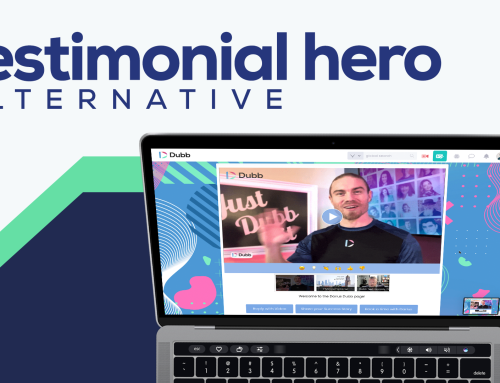
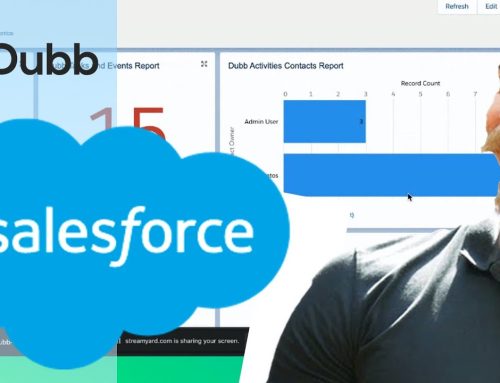
Leave A Comment